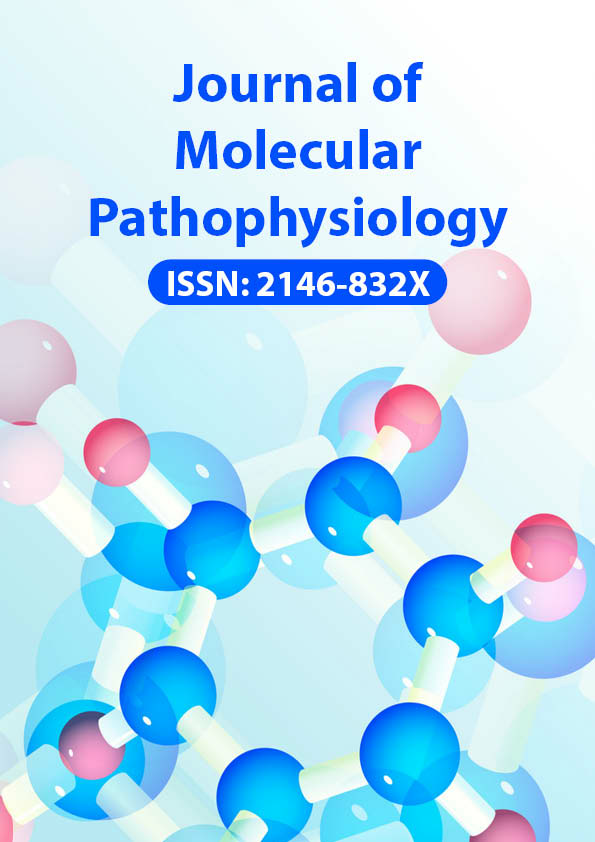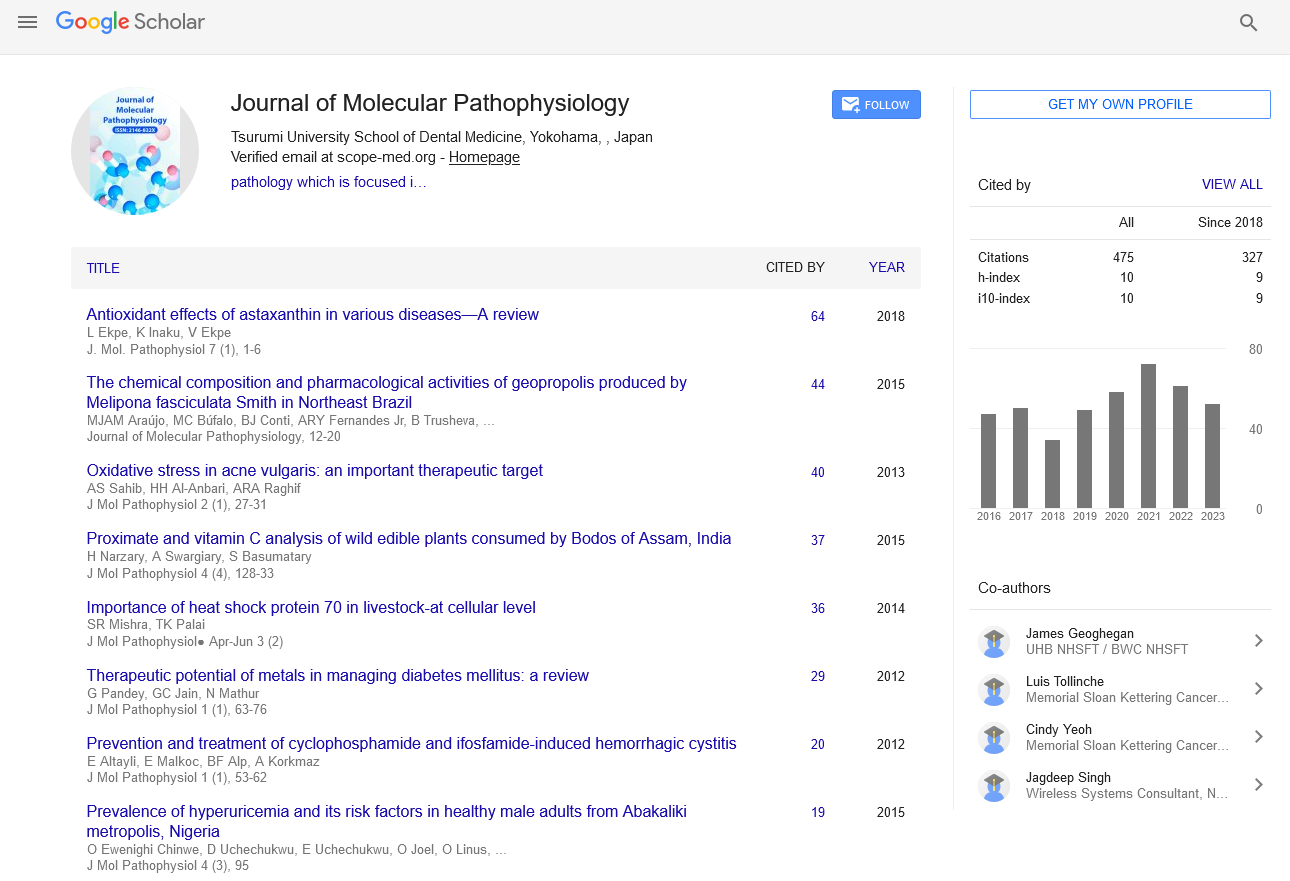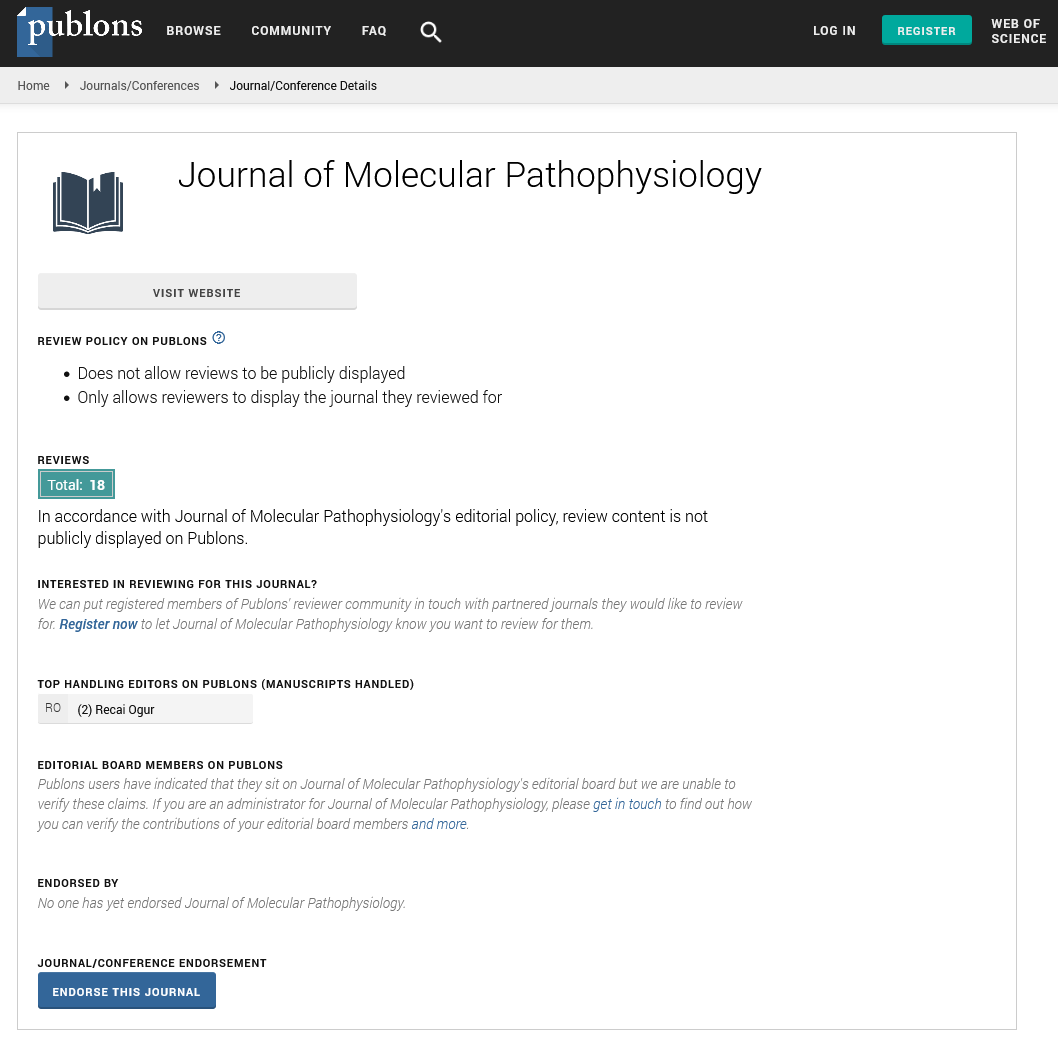Perspective - Journal of Molecular Pathophysiology (2023)
Immune Evasion and Therapeutic Resistance in Carcinoma
Kieran Cho*Kieran Cho, Department of Oncology, University of Alabama, Birmingham, USA,
Received: 29-Sep-2023, Manuscript No. JMOLPAT-23-119193; Editor assigned: 02-Oct-2023, Pre QC No. JMOLPAT-23-119193 (PQ); Reviewed: 17-Oct-2023, QC No. JMOLPAT-23-119193; Revised: 24-Oct-2023, Manuscript No. JMOLPAT-23-119193 (R); Published: 31-Oct-2023
About the Study
Carcinoma represents a significant portion of cancers affecting various organs and tissues in the human body. This malignant epithelial cell-derived tumor is a complex, multifaceted condition that arises from the dysregulation of cellular mechanisms, leading to uncontrolled growth and invasive tendencies. Carcinoma starts at a microscopic level, initiated by genetic mutations affecting the regulatory mechanisms controlling cellular growth, division, and differentiation. These mutations can be induced by various factors, including exposure to carcinogens like tobacco smoke, UV radiation, or certain chemicals, as well as genetic predispositions or viral infections. These mutations alter the cell's behavior, allowing it to evade the body's usual controls on proliferation and apoptosis.
Tumor suppressor genes and oncogenes
Normal cells possess regulatory mechanisms, like tumor suppressor genes and oncogenes, which maintain a balance between cell growth and cell death. Mutations in tumor suppressor genes, such as p53, or activation of oncogenes, like RAS, disrupt this balance. Cells become incapable of preventing unchecked growth or going through programmed cell death as a result. Angiogenesis, the formation of new blood vessels, is critical for a tumor's growth and spread. Cancer cells trigger the release of various growth factors, like Vascular Endothelial Growth Factor (VEGF), promoting the formation of new blood vessels. This process supplies the tumor with essential nutrients and oxygen, facilitating its growth. Concurrently, cancer cells develop the capacity to infiltrate nearby tissues through the secretion of enzymes that degrade the extracellular matrix, thereby permitting their entry into nearby tissues.
Metastasis, the hallmark of malignant tumors, is the process where cancer cells break away from the primary tumor, travel through the bloodstream or lymphatic system, and establish secondary tumors in distant organs. This process involves multiple complex steps, including the detachment of cancer cells, invasion into blood vessels, survival in the circulatory system, and establishment in new tissues or organs. Carcinomas create protection against the immune system. Some cancer cells express molecules that suppress the immune system, allowing them to avoid recognition and destruction by immune cells. Additionally, they might undergo mutations that make them resistant to chemotherapy or targeted therapies, posing significant challenges in treating advanced carcinomas.
Carcinoma diagnosis often involves a combination of techniques such as imaging (X-rays, CT scans, MRI), biopsies (fine needle aspiration, core needle biopsy), and laboratory tests (tumor markers, genetic testing) to confirm the presence of cancer, determine its stage, and identify its specific characteristics, aiding in treatment decisions. There are several options for treating carcinoma, and these are frequently customized according to the patient's general health, the cancer's stage, and its location. These may include surgery to remove the tumor, radiation therapy to target cancer cells, chemotherapy to destroy rapidly dividing cells, immunotherapy to boost the immune system's response against cancer, targeted therapy to focus on specific molecular abnormalities in cancer cells, or a combination of these approaches.
Carcinoma significantly impacts individuals and their families, affecting quality of life, imposing financial burdens, and causing emotional distress. The complex processes of carcinogenesis are still being studied, and developments in precision medicine, immunotherapies, and targeted therapies provide the possibility of less invasive and more effective treatments, which will improve the prognosis for individuals with carcinoma. A complex disease known as cancer is caused by a combination of environmental, genetic, and lifestyle factors. Understanding its pathophysiology is essential for prompt identification, efficient therapy, and continued investigation to create more specialized and customized treatments, providing a more optimistic future for those dealing with this difficult condition.







